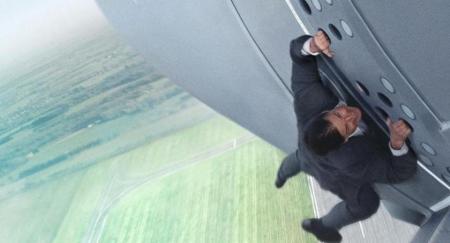by Avi Davis
In January of this year, after the horrific attacks on the Charlie Hebdo headquarters in Paris, I wrote several pieces in which I predicted that the attack was only the beginning of the war in which the citizens in Western capitals would become directly and irrevocably involved.
Of course it was not the true beginning at all. That distinction belongs to the French riots of 2005 and the Danish cartoon riots of 2006 in which the depravity of Muslim-European conduct was put on full televised display.
What I did not foresee in January this year is how rapidly my prophecy would transform into reality by November. Only eleven months and Paris, the gleaming jewel of Europe, is again the victim of a massive assault. Yet this time a far more sophisticated and damaging one than almost anyone could have expected.
Why Paris yet again? Because it is a soft target and difficult to defend; because it is a symbol of western hedonism with its theaters, concert halls, side walk cafes, rock concerts and galleries; And because, along with Berlin, it represents to the Islamic fundamentalist mind the core of the European experiment in Western unity. To inflict pain on Paris is to blast a hole through western confidence – an objective that the attacks on Friday have surely achieved.
So now what? French president Francoise Hollande has labeled the attacks an act of war, and has vowed vengeance. And indeed over the weekend the French air force in Syria carried out a range of sorties against Islamic State targets in Syria. The G20 meeting in Turkey also committed itself to greater coordination in the assault against Islamic State.
But since the Charlie Hebdo attacks there were plenty of crises to remind us of the continuing war against the West waged by Islamic terrorists. In April, Garissa University in Northeastern Kenya was the victim of a merciless assault by terrorists associated with al Shahab – an African offshoot of al Qaeda, which resulted in the deaths of 147 students. This was followed with massacres by Boko Haram in Nigeria, a powerful suicide bombing earlier this month in Beirut and of course the downing of a Russian airliner in Sinai on November 1st – both claimed by Islamic State.
The fact that these events are occurring around the world and not just in France should remind us of the global nature of the conflict.
In other words, this newly declared war, if anyone IS still truly in doubt, is nothing less than a world war between an atavistic death cult and what we know as Civilization. It is not a clash, in Samuel Huntington’s famous epigrammatic conception, of civilizations. It is rather a true Manichean struggle between the forces of life and the forces of death.
And how is such a world war prosecuted? Well perhaps we should think back to the last one and consider how it was successfully waged.
It was waged unconditionally and ruthlessly, so that the full weight, power and resources of the countries whose civilian populations were in direct peril, was brought to bear against the enemy. This included military force leveled at the the enemy’s territorial strongholds; Intelligence services which were freed from all constraints in order to gather as much information as they needed, from whatever sources were available and employing whatever technology was then current, in order to interdict enemy plots; And, of course, the operation was governed by a united command, under the aegis of the United States, whose civilian leadership was absolutely committed to the task before them and would not flinch nor be deterred from the mission of achieving unconditional surrender.
But that would be only the measures to be taken against the enemy in its lair. What about the enemy at home? How can any citizen of the West fail to be alarmed by reports from the survivors of the Bataclan Theater that the perpetrators of the killings spoke fluent, unaccented French and were later revealed to be French citizens?
The French, British, Swiss and German governments can no longer afford to speak blithely about the politics of inclusion and lean on the excuses of poverty and ill-education as the source of the incipient terror igniting in their suburbs. Undercover agents must penetrate the banlieus of France, the outer suburbs of Malmo and the breeding grounds of terrorism in Birmingham and Manchester. Mass arrests of Imams preaching violence must be conducted and their cohorts and congregations should be made fully aware that further incitement to violence will no longer be tolerated. And European immigration policy must be completely overhauled to prevent young Muslim males from gaining entry to European countries without first having committed unequivocally to the democratic values of those nations.
And one more thing: Isn’t it time for the Europeans to recognize that the State of Israel, which has been fighting the same war on its own turf and its under own terms for decades, is not the nemesis of Europe but rather its ally and perhaps even its savior? Israeli counter-intelligence, Israeli security technology and Israeli cyber skills – all among the best resources of their kind in the world, should now be graciously accepted by the Europeans in their struggle to defeat a common enemy.
Is any of the above likely to happen? Regretfully, I have little hope for it. The titular leader of the West, the American president, has no stomach for such engagements and has staked his presidency and its legacy on the idea that only a small band of malcontents, whom he won’t even label as Islamic, are responsible for the horrific events which have roiled world capitals for the past ten years. No other world leader, besides perhaps Vladimir Putin, seems prepared to take the draconian steps necessary to destroy the scourge which threatens the lives of their citizens. Neither David Cameron in Britain, nor Angela Merkel in Germany, nor Francois Hollande in France will ever be true or effective war time leaders.
And so, at a time in history when the civilized world cries out for fiery, determined leadership, we are saddled with lack luster also rans, schooled in politically correct nostrums and the traditional liberal aversion to military engagement who have fostered a climate of passivity in the face of unrelenting aggression.
It is not a prescription for victory.
Avi Davis is the president of the American Freedom Alliance in Los Angeles and the editor of the Intermediate Zone



 Posted by avidavis
Posted by avidavis 














